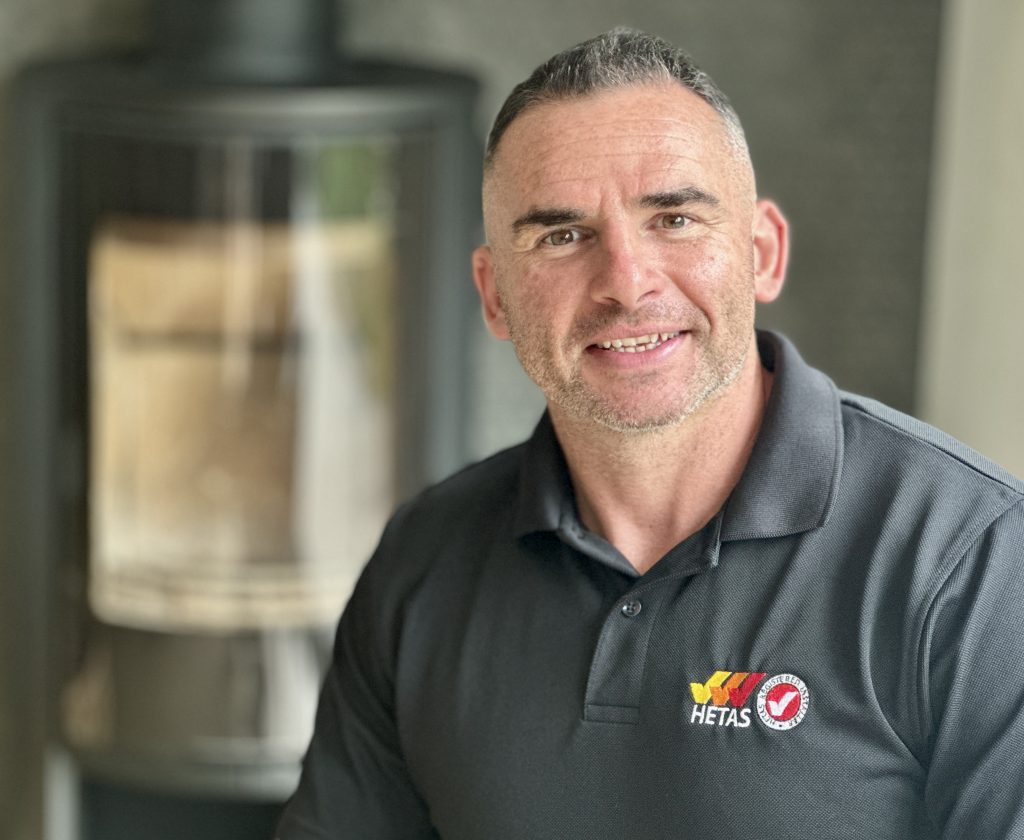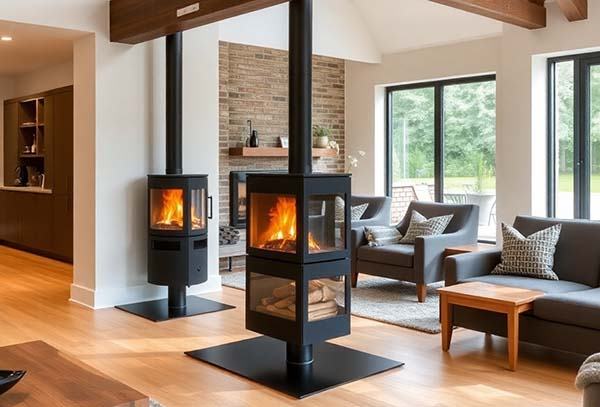Types, benefits and the best options for Dorset homes.
By Wes Dodd – WD Wood Burner Installations, Poole, Bournemouth & Dorset
If you own a log burner in Poole, Bournemouth, or Dorset, you’ve probably heard about chimney cowls. These simple devices sit on top of your chimney or flue and can make a huge difference to how your stove performs.
As a HETAS-approved installer, I often recommend chimney cowls to solve common issues like downdrafts, poor draw, or birds nesting in chimneys. But with so many types available, how do you know which one is right for your home?
Here’s my complete guide to chimney cowls – what they do, the different types, and when you should consider fitting one.
What Is a Chimney Cowl?
A chimney cowl is a cap or cover fitted to the top of your chimney pot or flue. It’s designed to:
- Prevent downdrafts (wind pushing smoke back into your home).
- Improve draw and stove performance.
- Stop rain from entering the flue.
- Keep out birds and debris.
They’re simple, affordable, and often the easiest solution to frustrating stove issues.
Common Problems a Chimney Cowl Can Fix
- Smoke blowing back into the room (especially in windy coastal areas like Sandbanks, Southbourne, or Hamworthy).
- Poor draw in short chimneys (common in bungalows or extensions in places like Corfe Mullen).
- Bird nests blocking flues in spring.
- Excess rainwater entering the chimney, causing damp problems.
Types of Chimney Cowls
| Type of Cowl | Best For | How It Works |
|---|---|---|
| Anti-downdraft Cowl | Homes in windy areas like coastal Dorset towns | Redirects wind so it can’t blow smoke back down |
| Rain Cap | General protection from rainwater | Simple cover with mesh sides, keeps flue dry |
| Bird Guard Cowl | Rural/village homes prone to bird nests (Corfe Mullen, Broadstone) | Mesh prevents birds from entering chimney |
| Spinning (Rotary) Cowl | Improving poor draw in still conditions | Wind turns blades, creating suction |
| Static Aspirotor Cowl | Properties with consistent downdraft issues | Uses venturi effect to improve airflow |
| Combined Cowl | All-round protection (wind, birds, rain) | Offers multiple benefits in one unit |
💡 Tip: Not all cowls are suitable for solid fuel appliances like log burners. Always choose one rated for wood-burning stoves.
Do I Need a Chimney Cowl?
Not every home needs one, but they’re a great investment if:
- You live in a windy or coastal part of Dorset (Sandbanks, Southbourne, Bournemouth seafront).
- Your chimney suffers from downdrafts or poor draw.
- Birds or squirrels have tried to nest in your flue.
- You want to reduce rainwater entering your chimney.
Pros and Cons of Chimney Cowls
| Pros | Cons |
|---|---|
| Improves stove performance | Needs professional fitting |
| Prevents smoke blow-back into the room | Adds a small cost upfront |
| Protects against rain and damp | Some models need occasional maintenance |
| Stops birds and debris blocking your chimney | Not all cowls suit all chimneys |
| Affordable and long-lasting solution | Wrong choice may not fix problem |
FAQ: Chimney Cowls and Log Burners
1. Will a chimney cowl definitely stop downdrafts?
In most cases yes, but it depends on your chimney height and location. I’ll recommend the right type during a survey.
2. Do chimney cowls reduce efficiency?
No – when fitted correctly, they improve efficiency by helping your stove draw properly.
3. Can I fit a chimney cowl myself?
I wouldn’t recommend it. Fitting requires working at height and making sure the cowl is safe and secure. Always use a professional.
4. Do chimney cowls need maintenance?
Most are low maintenance, but spinning cowls should be checked occasionally to ensure they’re free-moving.
5. How much does a chimney cowl cost?
They’re affordable – often much cheaper than more complex solutions like chimney fans. The exact cost depends on type and installation.
6. Will a cowl affect my chimney sweep?
Not at all. Most sweeps are used to working with cowls and can sweep through or temporarily remove them if needed.
Final Thoughts
A chimney cowl is one of the simplest and most effective upgrades you can make to your wood burner setup. From stopping smoke blow-back to keeping out birds and rain, it’s a small investment that makes a big difference.
As your local wood burner installer in Poole, Bournemouth, Christchurch, Wimborne, Swanage, Wareham, and Corfe Mullen, I can recommend and fit the right cowl for your home – keeping your stove safe, efficient, and problem-free.
👉 Contact WD Wood Burner Installations today for expert advice, cowl fitting, chimney sweeping, and log burner installations across Dorset.




